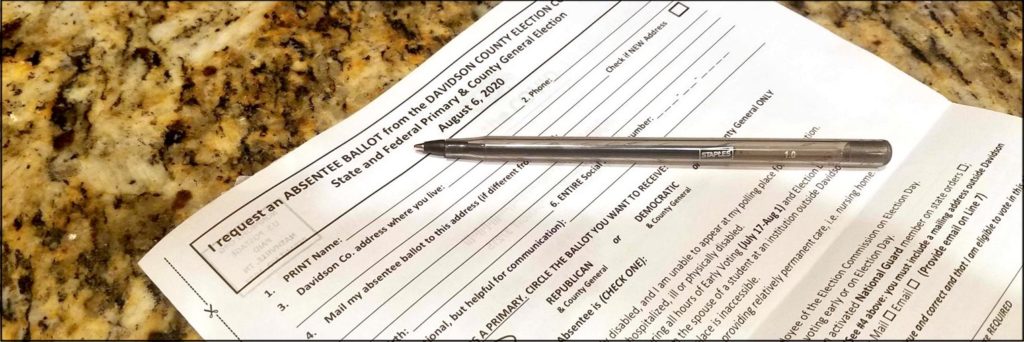
Legal challenges over voting rights are brewing in courtrooms across the country heading into the midterm elections, including in Tennessee, where voting rights advocates are awaiting the decision on a case over absentee ballot distribution.
The Tennessee State Conference of the NAACP and Memphis-based community groups, represented by the Campaign Legal Center, are suing Tennessee over a law that makes it a felony to distribute absentee ballot applications.
The Cincinatti-based 6th U.S. Circuit Court of Appeals heard oral arguments in the case, Lichtenstein v. Hargett, on Oct. 27.
Attorney Danielle Lang, representing the plaintiffs, said the law violates a First Amendment protection to engage in political speech.
“Just because there’s one method that the petition circulators could have used, which would be [saying] ‘Go print out the petition yourself.’ That doesn’t mean that petition circulation where you collect the signatures is not covered,” said Lang.
Plaintiffs say the law is overly punitive and interferes with voter outreach. Collecting applications for people and turning them in is essential to voter engagement, Lang said.
“That’s a huge part of get-out-the-vote work is helping voters understand the process. Absentee voting is a complicated process,” she said.
Several judges on the 6th Circuit also raised concerns about the potential for voters to unknowingly violate the law, noting that the applications are free to download from the Tennessee Secretary of State’s own website.
“[S]o all those people who, you know, randomly print out the thing and then give it to their spouse, they may have committed a crime. That seems problematic,” said U.S. Circuit Judge Eric E. Murphy.
Representing the state, Assistant Solicitor General Clark L. Hildabrand said the law dates back to 1994. The statute allows voters to have assistance in filling out the application, he said, but they must download the form themselves.
“The state wants to make sure that there remains a direct connection between the potential voter and the election commission,” said Hildabrand.
But Lang said the outcome of the case could have long-term consequences for voter engagement.
“When you get into a world where the state of Tennessee has so strictly regulated voter education and engagement — that merely printing out a form and giving it to your fellow citizens is a felony — I think you’re going to run into serious chilling problems,” she said.
The court did not indicate when it may rule in the case.

